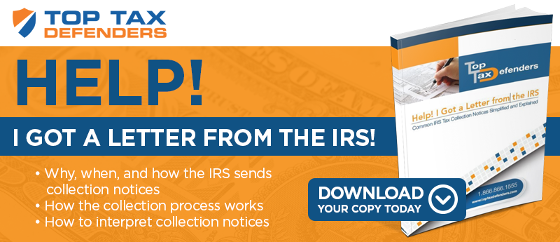
If you get a CP71C notice in the mail from the Internal Revenue Service, you'll need to take a few minutes and read it thoroughly. While some written notices from the IRS can be fairly innocuous, the CP71C notice deserves serious attention. The steps you take after receiving the notice can either help or hurt both your account status with the IRS and your overall financial situation.
What is the CP71C Notice?
The CP71C notice is used as a formal statement to remind taxpayers of their total tax balance due, so they can avoid tax problems such as wage garnishments. While the notice may seem like a mere formality, it is actually used as a legal notice to inform taxpayers that their balance is seriously past due and to state the exact total owed, including taxes, interest, and tax penalties. In general, the CP71C notice is only sent out after a tax balance is delinquent, possibly years after a payment was originally due.
Are You Required to Pay the Tax on the CP71C Notice?
By the time the IRS issues a CP71C notice, the agency has decided that you are required to remit the entire balance immediately. The total shown on the CP71C notice includes both the original tax balance, as well as any interest, late fees, and additional penalties that have accrued over time.
Taxpayers who are unable to pay their entire amount due by this point may be tempted to ignore the statement and hope that the IRS chooses not to pursue action. However, if you're unable to pay your balance, you can contact the IRS to set up a tax installment plan. Doing this will help you bring your account into compliance and begin repaying your account slowly.
Why You Should Take the CP71C Notice Seriously
By the time you receive a CP71C notice, you will probably have received other notices from the IRS. Unlike the previous letters, though, the CP71C notice is generally sent as a kind of last resort. In fact, in many instances, the IRS issues the CP71C notice either directly before or directly after issuing a Notice of Intent to Levy. This often means that the taxpayer in question has made no efforts to rectify his or her tax situation so far.
Failing to address your tax balance after getting a CP71C notice can lead the IRS to impose a tax levy, which can tie your assets and even your income. As long as your balance remains unpaid, you will also continue to accrue interest and penalties, which will increase the amount you owe.
Receiving a CP71C notice from the IRS can be a little frightening. However, if you read the letter carefully and begin taking steps to clear up your balance due right away, you may be able to head off any collection action from the IRS and straighten out your tax situation.




